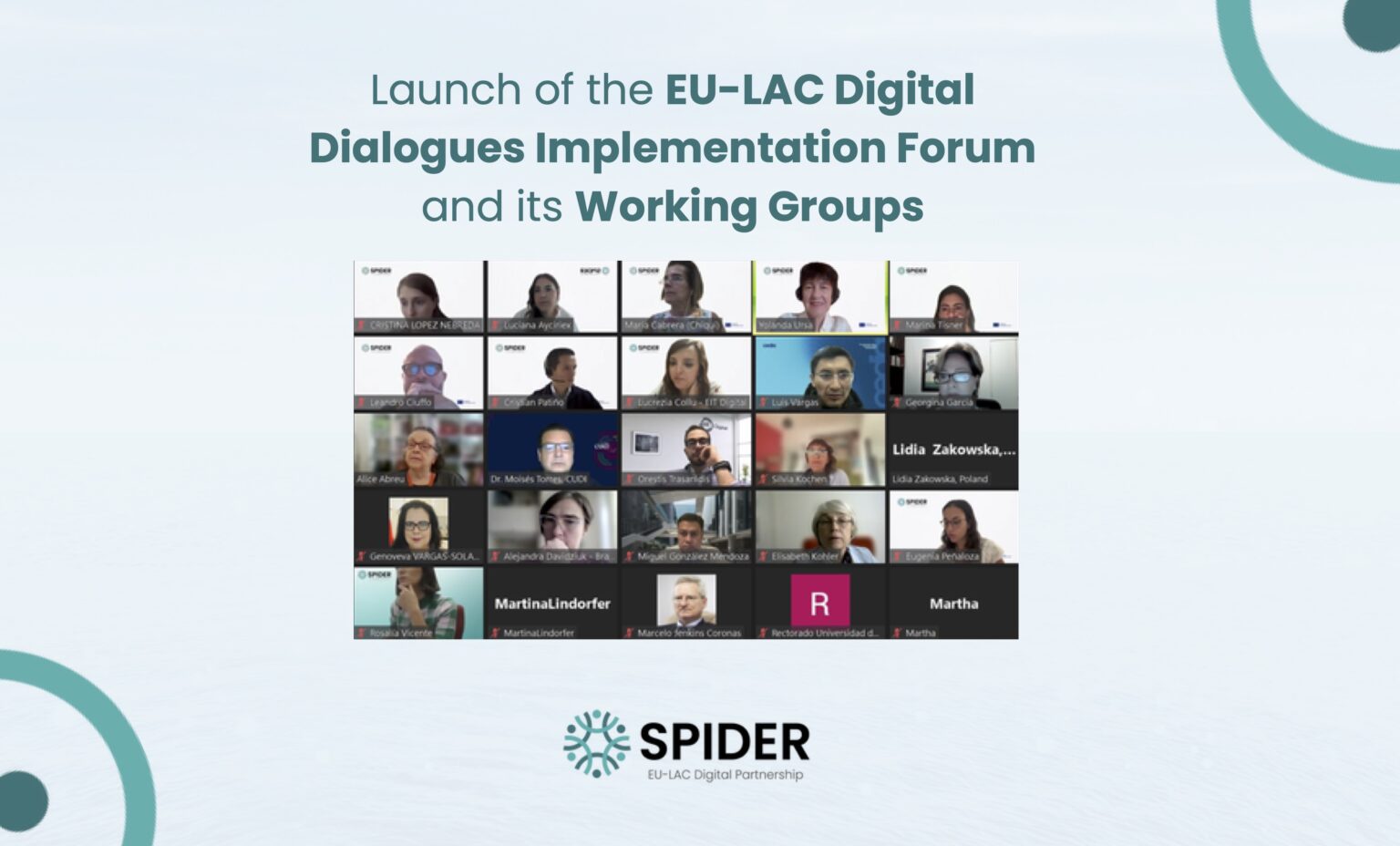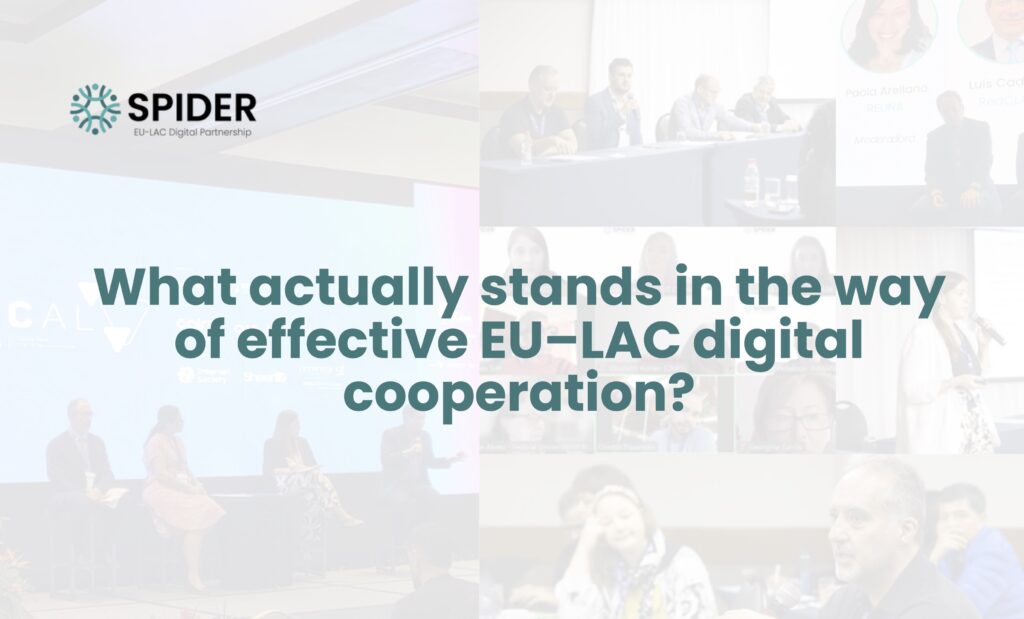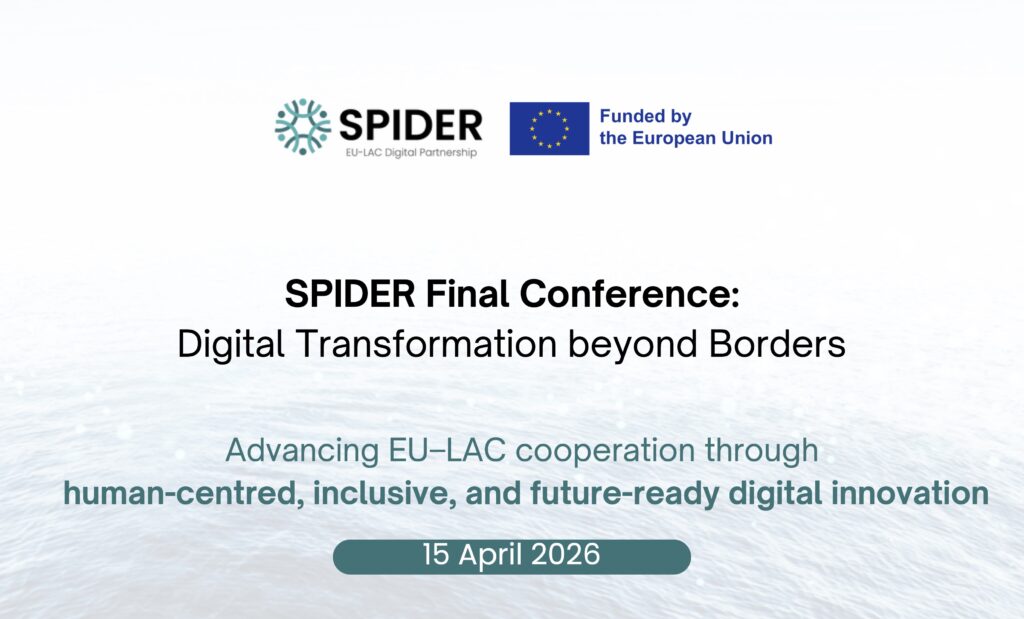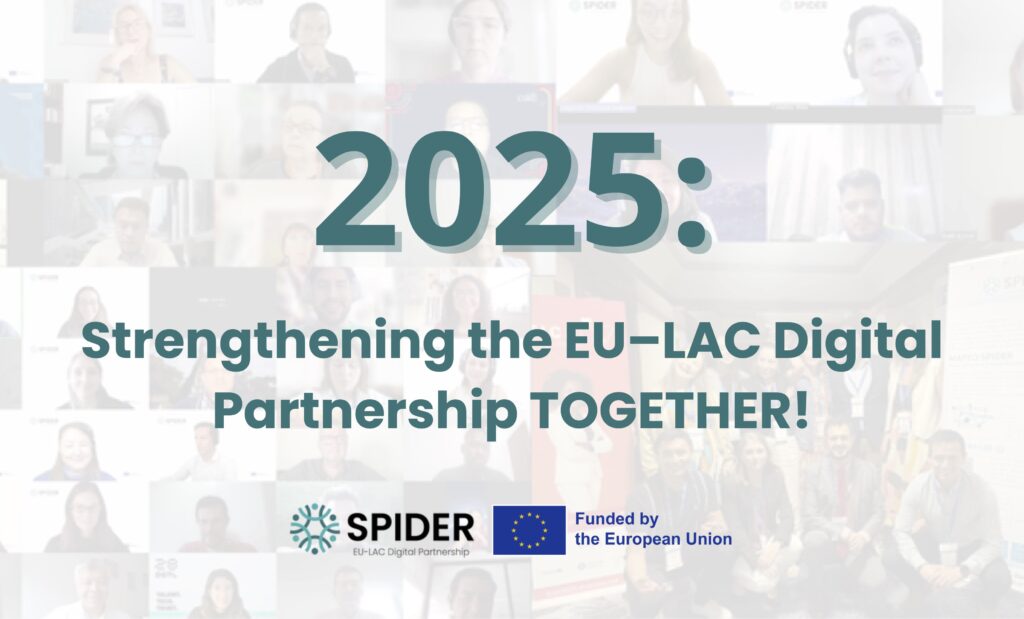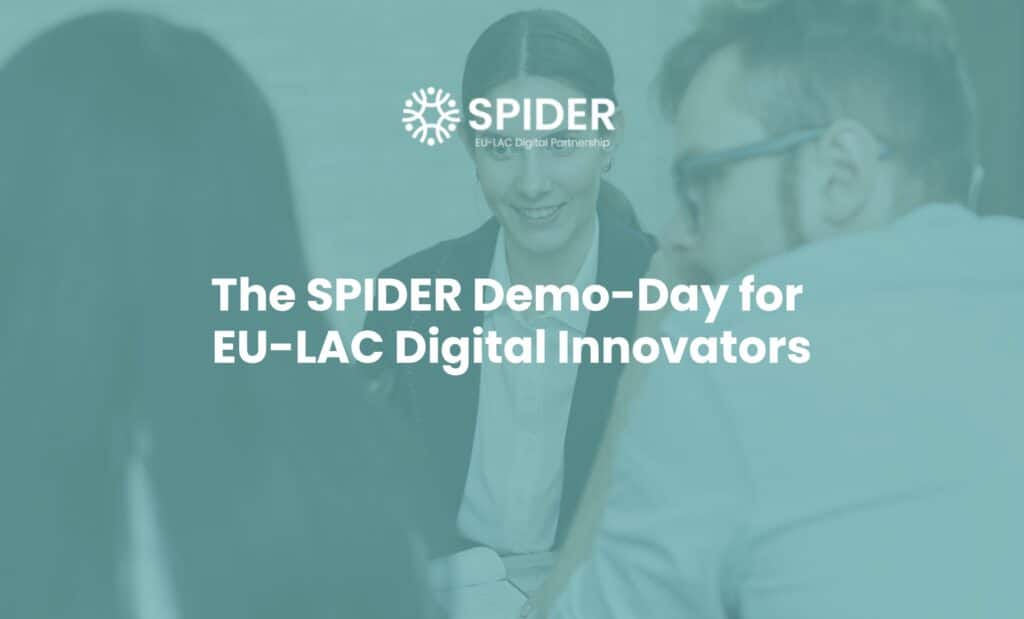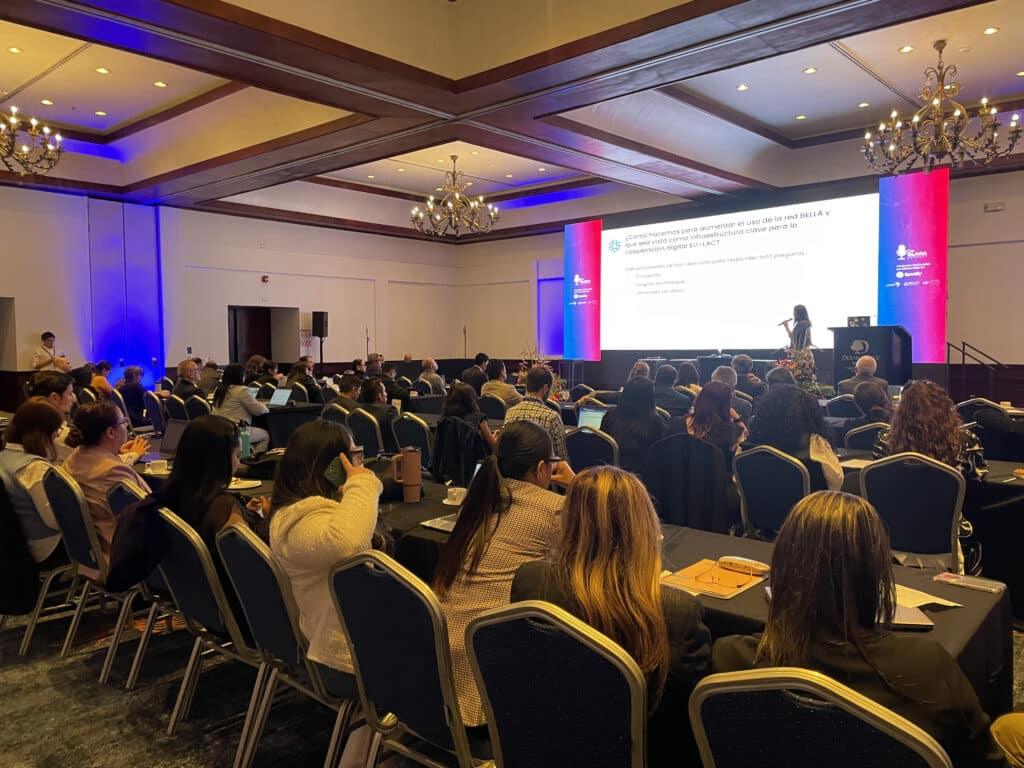Last week marked a significant milestone for SPIDER with the launch of the Dialogues Implementation Forum and its Working Groups through an online meeting that brought together 40 experts from different fields from Europe, Latin America, and the Caribbean. Through this session, the members of each working group had a chance to meet each other and were divided into two sub-groups based on specific topics to allow for more focused and in-depth discussions.
Working Group 1, Human-Centric Digital Transformation, was divided into groups to address the topics of Policy, Regulation, and Stakeholder Engagement, and Implementation, Security, and Measurement. Working Group 2, Diversity, Equality, and Inclusion, was divided to discuss DEI Principles and Values in the EU-LAC Cooperation on Digital Transformation, and DEI in the Research Design Process on Digital Transformation.
This meeting not only highlighted current challenges but also paved the way for innovative solutions and collaborative ways to shape the future of digital transformation and inclusivity. The outcomes of these discussions will guide the next steps in the project, ensuring that digital transformation efforts are aligned, sustainable, and truly centered around human needs.
Insights from each group discussion:
Working Group 1: Human-Centric Digital Transformation
Sub-Group 1: Policy, Regulation, and Stakeholder Engagement
This session centered on the need for a cohesive strategy between countries to ensure alignment in their objectives. Members highlighted the importance of synchronized strategic priorities to avoid misalignment, which often hampers progress. A significant portion of the discussion was devoted to data management—addressing issues related to the use of technology in a human-centric approach, the handling of data, and the common technological background essential for successful implementation.
The group underscored that every technological deployment must consider the underlying data to be truly effective and human-centric. This comprehensive dialogue set the stage for establishing robust policy frameworks and regulations that can support sustainable digital transformation.
Sub-Group 2: Implementation, Security, and Measurement
This sub-group focused on the practical aspects of digital transformation, emphasizing the need for thorough needs analysis and developing strong medium- and long-term plans to ensure social and sustainable impact.
The discussion emphasized integrating digital courses across curricula and highlighted the importance of soft skills in achieving human-centric digital transformation. Key barriers identified included a lack of digital infrastructure within universities, the absence of standardized approaches, and the necessity for a multidisciplinary perspective that includes ethics.
The group also stressed the importance of measuring the impact of digital projects on community health and wellness. This involves assessing the number of people engaged, the extent of their impact, and the overall contribution to project success.
Skills and learning metrics, along with the accessibility and openness of digital initiatives, were identified as critical indicators for evaluating the success of these projects. The insights from this session are expected to drive the development of more inclusive and effective digital transformation strategies.
Working Group 2: Diversity, Equality, and Inclusion
Sub-Group 1: DEI Principles and Values in the EU-LAC Cooperation on Digital Transformation
This sub-group addressed the often-overlooked need to integrate Diversity, Equality, and Inclusion (DEI) principles into digital transformation. The discussions emphasized the importance of leadership commitment, highlighting the need for leaders and policymakers to champion DEI values actively.
There was also a strong focus on analyzing the impact of technology on women, addressing stereotypes, and breaking biases associated with technologies like AI. Creating policy frameworks that embed DEI principles into digital transformation and research and development projects was crucial.
The group prioritized objectives such as providing access to resources and funding to organizations working on DEI, enhancing gender equality in the digital sector by promoting equal opportunities in STEM fields, implementing gender-sensitive policies, and supporting women entrepreneurs. Cultural barriers affecting diverse group participation were also discussed, with proposed solutions including awareness and education initiatives, mentorship programs, and scholarships.
Sub-Group 2: DEI in the Research Design Process on Digital Transformation
This sub-group focused on strategies to ensure diverse representation in research teams and addressed several challenges. Significant obstacles included unbalanced commissions and biased pools of professors within research institutions. Additionally, the misalignment between funding agencies and research institutions concerning diversity policies was identified as a major challenge.
Furthermore, effective strategies outlined included affirmative actions, such as ensuring research groups include at least one woman, and programs encouraging women to publish their research. Flexible work arrangements were deemed essential to accommodate the needs of a diverse workforce, including working parents and people with disabilities.
Challenges to integrating DEI in research were also discussed, along with mitigation strategies such as women’s advocacy, leadership commitment, and raising awareness about unconscious biases. Institutional changes were highlighted as necessary for creating an inclusive culture.
Launching a platform for collaboration, inclusivity, and innovation
The Dialogues Implementation Forum (DIF) and its Working Groups Launch was a pivotal moment for SPIDER, setting a clear direction for future efforts in human-centric digital transformation and DEI. The creation of focused sub-groups within each working group allowed for detailed and targeted discussions, addressing both policy-level and implementation-specific challenges. This pivotal step seeks to foster constructive dialogues, stimulate in-depth discussions, and facilitate comprehensive knowledge exchange, all aimed at enhancing the implementation of R&I commitments from EU-LAC digital dialogues. By integrating policy practitioners and experts from the digital realms of science, technology, education, and innovation across both regions, DIF seeks to craft a robust cooperation roadmap on digital transformation, thereby exploiting the full potential of the BELLA network to drive forward mutual progress and innovation.

